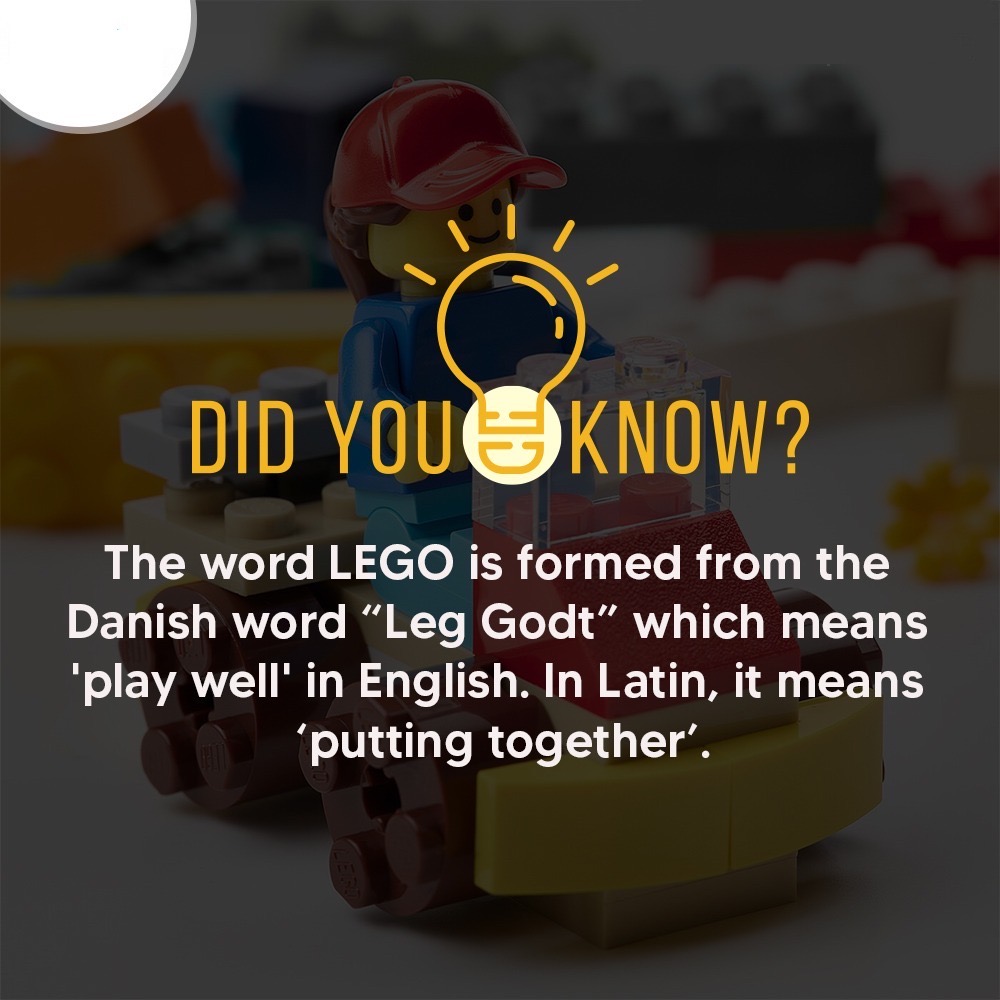
The word "LEGO" is indeed derived from the Danish phrase "Leg Godt," which means "play well" in English. LEGO was founded in Denmark in 1932 by Ole Kirk Christiansen, who started by making wooden toys before transitioning to plastic bricks in the late 1940s. The LEGO Group trademarked the name "LEGO" in 1934, and the company has been using the name ever since.
It's interesting to note that in Latin, the word "LEGO" means "I put together" or "I assemble." This Latin meaning is particularly relevant to the LEGO brand because it emphasizes the importance of the building aspect of the toy. LEGO sets are designed to encourage creativity and problem-solving, as children construct models using the interlocking bricks.
The name "LEGO" perfectly captures the essence of the toy. It emphasizes the importance of play and creativity while also highlighting the fundamental building aspect that makes LEGO sets so unique and engaging.
The history of LEGO dates back to 1932 when a Danish carpenter named Ole Kirk Christiansen started a small company in Billund, Denmark, making wooden toys.
After World War II, LEGO began producing plastic toys, and in 1949, they introduced the LEGO brick, which would become their flagship product. The interlocking plastic bricks allowed children to build and create different structures, sparking their imagination and creativity. Over the years, LEGO has expanded its product line to include themed sets, such as space exploration, castle building, and even popular franchises like Star Wars and Harry Potter.
In the 1960s and 70s, LEGO faced financial difficulties due to the rise of electronic toys, but they were able to recover by diversifying their product line and expanding their global presence. Today, LEGO is one of the most recognizable toy brands in the world, with a presence in more than 140 countries and a product line that includes not only traditional bricks but also video games, theme parks, and movies.
LEGO's enduring popularity can be attributed to its ability to evolve with the times while still staying true to its core principles of encouraging creativity, imagination, and problem-solving through play.